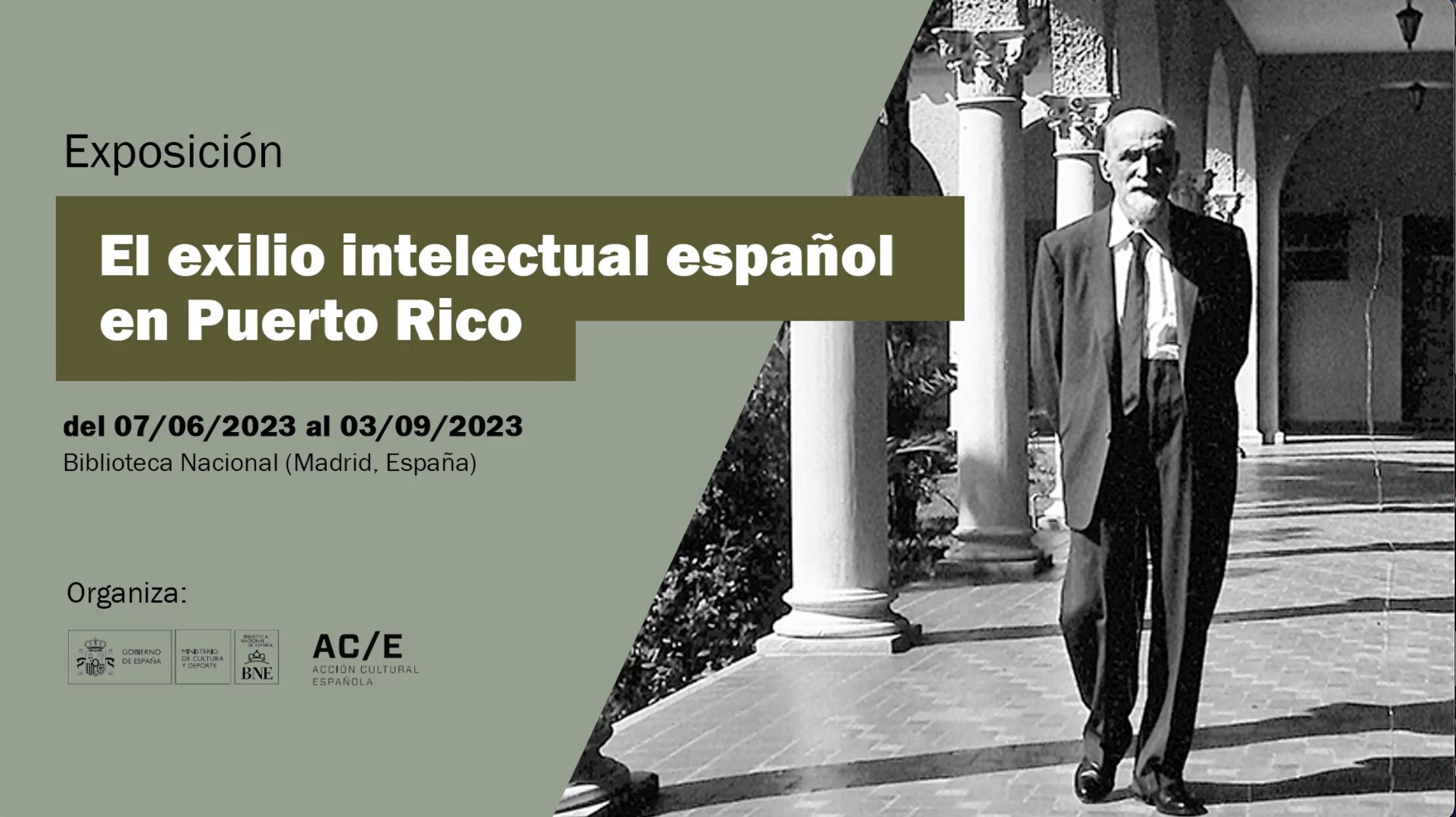South America was one of the main destinations for the flow of Spanish exiles who left the country because of the Civil War. Despite its size, Puerto Rico and its capital, San Juan, were the destination of a group of very prominent figures, and their presence on the island had an intense impact on cultural and intellectual life.
The exhibition reconstructs the broad context of the Spanish intellectual exile in Puerto Rico, attending to the daily cultural life of these exiles (their projects, their publications, their collaborations and friendships). Among the Spanish intellectuals and artists who made Puerto Rico their home and who participated intensely in the sociocultural life of the island are: Juan Ramón Jiménez and Zenobia Camprubí, Pau Casals, Pedro Salinas, María Zambrano, Jorge Guillén, Francisco Ayala, Federico de Onís or Aurora de Albornoz.
The exhibition takes as its guiding thread the story of love and intellectual work of Juan Ramón and Zenobia, from the beginning of their courtship, in Spain prior to the Civil War, until the Nobel Prize was awarded to Juan Ramón and the death of both in San Juan de Puerto Rico. Audiovisual materials from the time are also incorporated, which complete the immersion in this fragment of shared history, together with testimonies from today's Spanish and Puerto Rican intellectuals and artists, who trace, from our 21st century, the solid link between both cultural spaces.
The arrival in Puerto Rico extends over several decades, between 1930 and 1950, giving rise to a network of unthinkable confluences in Spain prior to the Civil War. Juan Ramón and Zenobia made the island their first destination in 1936 and returned to it in 1951. Already in the 1940s, the arrival of the philosopher María Zambrano marked a high point in this new San Juan, which soon received Pedro Salinas, who He writes some of his most important works –such as El Contemplado– inspired by Puerto Rico, where he will ask to be buried. The great musician and composer Pau Casals is, on the other hand, responsible for the foundation of the Puerto Rico Symphony Orchestra and its Conservatory, showing how the mark of these exiles is still felt today. Among the younger generation, it is worth noting the important work of Aurora de Albornoz in the dissemination and teaching of poetry and literature from before and after the War. And, of course, we must remember Franscisco Ayala, who founded the influential magazine 'La Torre' in the early 1950s, together with Jaime Benítez.














.jpg&w=139&h=139)












